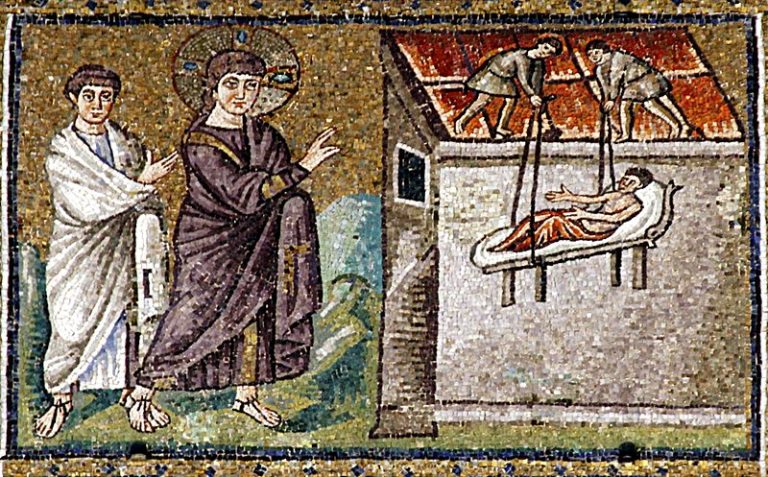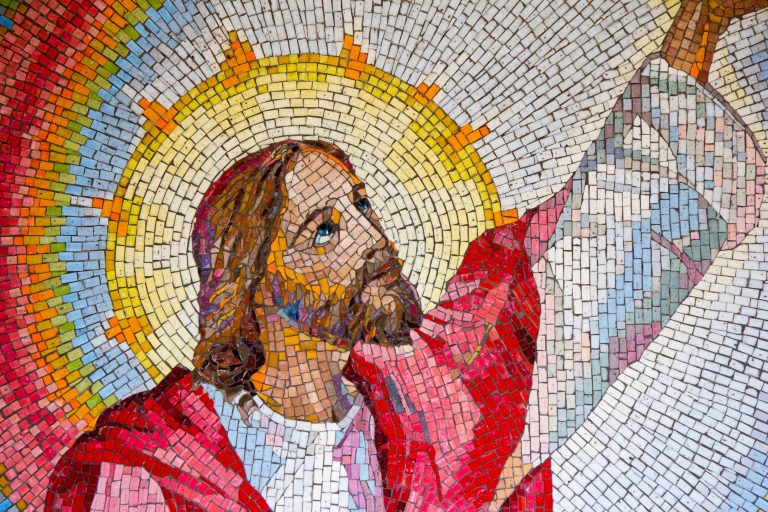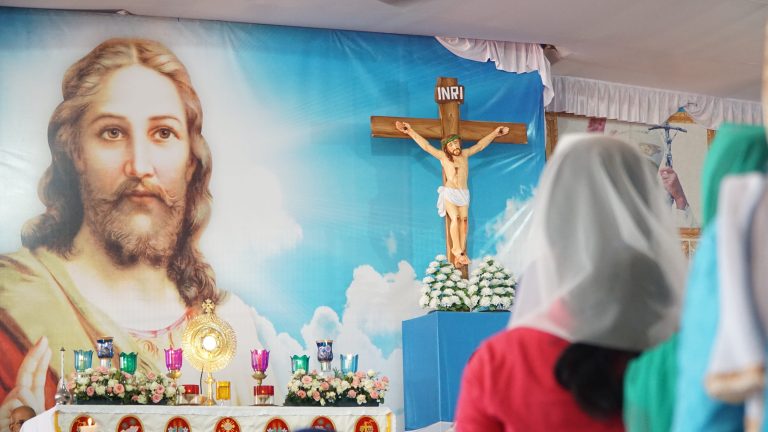Does It Take Money to Foster an Apostolic Parish?
“We don’t have the money for that.”
“We can barely pay the staff we have.”
“We don’t have the budget for risks. We need to be good stewards here.”
Money is a point of pain for so many in parishes and dioceses: asking for it, stewarding it, spending it, talking about it. And when parishes believe they need to do something new to adapt their parish culture and values from maintenance to mission, the immediate American response is: That’s going to take money. Because we’re going to have to buy something.
So let’s talk about the elephant in the room: do you need money to foster an apostolic parish?
Spoiler alert: this is going to be a three part series. And the answer is: no (Part I). and a great big BUT… (Part II). And then THE BIGGER PROBLEM (Part III).
Part I: The argument for NO, you do not need money to foster an apostolic parish.
I’m pretty sensitive to this argument because I was hired by my diocese to usher our parishes to embracing evangelization and missionary discipleship two months before the diocese declared bankruptcy. That is, beyond my salary and a really modest resource/internal travel budget, we had zero money to work with. And I refused to allow the bankruptcy to stop us. After all, Jesus didn’t do a fundraiser before preaching the gospel.
So, I often suggested–and suggest–
Refocusing on the Great Commission in word, preaching, and planning can be completely free. It’s a mental shift, a practice shift before a budget shift.
There are ways forward that are out of the box and free, or nearly so. The first one I suggest to parishes that are genuinely strapped is adopting Discipleship Quads, out of Franciscan Outreach. This is a small group spiritual multiplication process that is as simple–and powerful–as four people agreeing to join together for a year to encourage each other’s discipleship through weekly meeting for prayer, faith-sharing, and learning. The materials are free online, and brilliantly plotted. But the genius is a simple one: invest in each other’s friendship with God, and commit to passing it on the next year to three new people. In three years, you have a recommitted core of Catholic Christian disciples, and in 5 years, it could be most of the parish.
Another option that is more of an outreach–with adaptations–is Alpha or ChristLife. Again, the excellent materials are free (Alpha) or inexpensive (ChristLife). If you scaled Alpha/ChristLife to small groups held in homes, or at different hours in the parish hall, and you made it a “dessert Alpha” or “Coffee and ChristLife,” and you held the Holy Spirit retreat all together at the Church with some minimal support, the cost could be very low (by very low, I mean all total $500-1000). The cost is really in the food. If the desire was to make this a full parish initiative, some people could step up and provide food or you–a service organization (Knights of Columbus, Council of Catholic Women, Serra, the youth group, the confirmation service project, etc.) could donate and serve a meal, a high school culinary arts program can make this a service project, a couple of Church programs could do a chili cook-off on site for fun and bragging rights, or a grocery could give you cut costs for advertising…even that cost could be reduced. Or hold the Alpha/ChristLife in a bar or coffeehouse back room. You may pay for the room (or not), but people pay for their drinks…maybe you provide snacks.
The other option I often make to people is that training and empowering people to invite people to the Church is low cost–and essential. When I visit parishes, most people will say they have good hospitality. Perhaps they do, but I suspect what they mean to say is that they are kind to each other. That’s good, but it isn’t hospitality, which is generosity to the stranger. Invitation is a key element of hospitality–as well as welcome. Saint Paul Evangelization Institute has a parish hospitality workshop which they deliberately keep very low cost…because they recognized that they can’t be doing street evangelization and getting people to walk in the door, and then they aren’t welcomed. Again, promoting this workshop as a parish mission, and requiring ushers and front desk workers and councils to attend would have a remarkable effect on the culture of the parish.
Also, I wrote a booklet designed to be read by multiple people–maybe everyone!–in a parish, and especially as a PDF it is priced accordingly. Most Catholics are open to sharing their faith–they just don’t know how. Likewise, most parishes want to become evangelizing parishes–and they don’t know how. 101 Ways to Evangelize is a fun, snappy idea book that introduces the why of evangelization and lists all kinds of hows–and yes, a lot of them are cheap. And when bought as a PDF (20 pages), you receive a license to print 10 copies: you can easily have a rich ideas resource for councils, focus groups, staff and more for under $15 (50 copies!). Once reading it, people move from “what do we have to do” to “look what we get to do! What do we do first?”.
The other reason evangelization can be done cheap? Voluntary poverty is evangelical.
But the other important piece of “not needing” money when it comes to evangelization–sharing the gospel is often more powerful when it comes out of voluntary poverty.
Francis of Assisi arguably re-evangelized the entire Church in the 13th century. The Church in Italy was wealthy, entangled in politics, and some were corrupt. Francis’ call was to eschew all of the trapping of wealth and status and live in radical poverty. The Church was accustomed to the monastic model of a vow of poverty, which was voluntary and involved supporting the community through work, usually farming. Francis introduced something entirely different: begging for daily bread. He was, as we say now, working without a net. He would say, I have a net–and the net is God. If I starve, it is no doubt what I deserve. If I receive daily bread, it is a great grace that comes from God through human hands. And the people who give are equally blessed. In the meantime, assuming he would be cared for by providence, he focused on preaching. And people came–in droves. It was the gospel stripped of status, and people realized they craved it.
Tertullian, one of our early Church fathers, famously said “the blood of the martyrs is the seed of the Church.” He said that because the more people stood up and allowed themselves to be killed for their faith, the more people saw this and thought–what gives them the courage and passion to do this? Killing Christians had the effect of growing the faithful, dramatically. In the United States, we are not called martyrdom–often. But voluntary poverty in the richest nation of the world has a similar effect. People look, and wonder, and ask why. It is a giving of life to Christ that cannot be refuted.
Evangelizing out of our chosen poverty can be the most powerful witness we can make in our society where people, ideas, and meaning are bought and sold. It is probably the reason why investing in relationship and invitation to life in Christ–without care for money–is the most powerful evangelization strategy we have. You do not need to be a wealthy parish to evangelize purely and with great success.
HOWEVER. Oh, there is a great big however to this.
Refusing to spend money on evangelization when you have it is not voluntary poverty. Money, when we have it, is one important way to invest what we have received for others’ good. And that, my friends, is Part II…coming next week!










